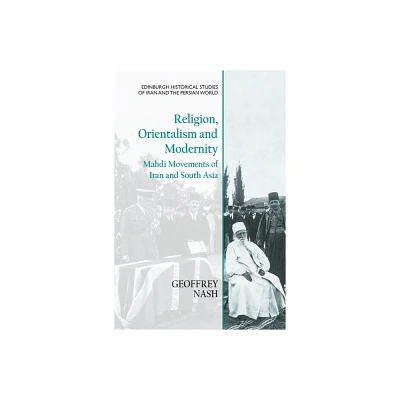Home
the Spiritual Turn: Religion of Heart and Making Romantic Liberal Modernity
Loading Inventory...
Barnes and Noble
the Spiritual Turn: Religion of Heart and Making Romantic Liberal Modernity
Current price: $110.00


Barnes and Noble
the Spiritual Turn: Religion of Heart and Making Romantic Liberal Modernity
Current price: $110.00
Loading Inventory...
Size: Hardcover
*Product Information may vary - to confirm product availability, pricing, and additional information please contact Barnes and Noble
Increasingly, North Americans and Western Europeans identify as 'spiritual but not religious'. But what does 'spirituality' actually mean? And what does this recent 'spiritual turn' reveal about the nature of twenty-first century liberal democracies?
Secularization theorists argue that spirituality lacks institutional support and a shared tradition, thereby evincing religious decline. Meanwhile, critical commentators contend that the spiritual turn embodies all of the ills of post-1960s liberal democracies. This book challenges these popular misconceptions. Combining cultural sociology with intellectual history and political philosophy, and drawing from first-hand interview and fieldwork data, along with discourse analysis of best-selling books, it shows that rather than reflecting religious decline, the spiritual turn marks the rise of an enduring cultural structure in Western modernity-the religion of the heart.
Tracing the religion of the heart to the 1960s,
The Spiritual Turn
illuminates its elective affinities with the romantic liberal social imaginary that crystallized in popular consciousness during this era, and transformed the institutional spheres of Western liberal democracies, eventually giving birth to a new social order-romantic liberal modernity. Then, inspired by the Durkheimian tradition, it presents case studies of three sites where the religion of the heart is institutionalized in a specific discursive form-a Twelve Step group, a neo-Pentecostal church, and a Toastmasters public speaking club. The book concludes that while critics may have reason to disparage both spirituality and romantic liberal modernity more generally, the reality is far more complex than their criticisms suggest-and more importantly, far less hopeless.
Secularization theorists argue that spirituality lacks institutional support and a shared tradition, thereby evincing religious decline. Meanwhile, critical commentators contend that the spiritual turn embodies all of the ills of post-1960s liberal democracies. This book challenges these popular misconceptions. Combining cultural sociology with intellectual history and political philosophy, and drawing from first-hand interview and fieldwork data, along with discourse analysis of best-selling books, it shows that rather than reflecting religious decline, the spiritual turn marks the rise of an enduring cultural structure in Western modernity-the religion of the heart.
Tracing the religion of the heart to the 1960s,
The Spiritual Turn
illuminates its elective affinities with the romantic liberal social imaginary that crystallized in popular consciousness during this era, and transformed the institutional spheres of Western liberal democracies, eventually giving birth to a new social order-romantic liberal modernity. Then, inspired by the Durkheimian tradition, it presents case studies of three sites where the religion of the heart is institutionalized in a specific discursive form-a Twelve Step group, a neo-Pentecostal church, and a Toastmasters public speaking club. The book concludes that while critics may have reason to disparage both spirituality and romantic liberal modernity more generally, the reality is far more complex than their criticisms suggest-and more importantly, far less hopeless.


















